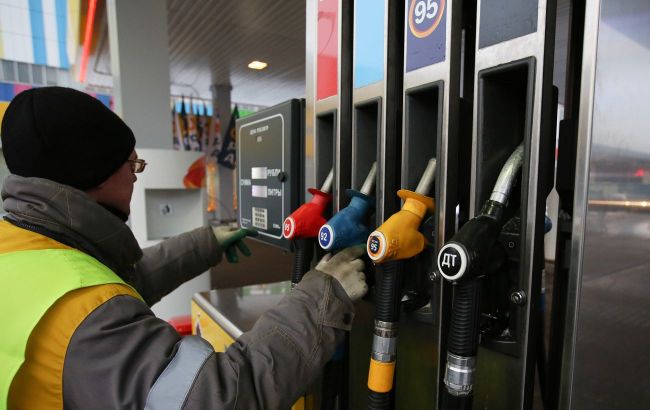Russia could become 60% dependent on fuel imports by end of year - Intelligence
 Photo: Russia could become 60% dependent on fuel imports by the end of the year (Getty Images)
Photo: Russia could become 60% dependent on fuel imports by the end of the year (Getty Images)
Russia could become up to 60% dependent on fuel imports by the end of 2025 without at least six months of repairs under calm conditions, according to the Telegram channel of the Ukrainian Foreign Intelligence Service.
"The fuel crisis engulfing Russia is less a result of isolated accidents or sanctions than a reflection of the deep degradation of its energy model. Years of underfunding, technological isolation, and flawed management decisions have turned what was once a profitable industry into a system surviving on inertia," the intelligence service said.
It noted that Russian refineries, concentrated mainly in a few industrial centers in the European part of the country, remain technologically outdated and structurally inefficient. When some of these plants ceased operations, the country effectively lost a significant portion of its domestic capacity.
After banning gasoline exports in September, the Russian government attempted to stabilize the situation, but this move only worsened the crisis. External sales had previously helped offset chronic losses and partially fund industry modernization.
Now, without foreign currency inflows, enterprises lack resources for upgrades, while price controls in the domestic market are creating an artificial shortage.
The Foreign Intelligence Service also noted that rising gasoline prices are driving up transportation costs, which directly affects consumer goods prices.
Combined with increased VAT, this creates the risk of a sharp acceleration in inflation. Official statistics may try to mask the effect, but consumers will feel it in their wallets.
Fuel crisis in Russia
Problems with gasoline in Russia began after a series of powerful Ukrainian drone strikes on oil refineries.
As a result, some regions of Russia and temporarily occupied territories introduced restrictions on gasoline sales. In addition, the Russian authorities banned fuel exports.
Amid the fuel crisis, Russian gas stations began closing en masse, including stations in Moscow.
Media outlets reported that at least 57 regions of Russia have been affected by the fuel crisis triggered by intensified Ukrainian attacks on oil refineries — over half of the country’s federal subjects.
In addition, Russia resumed gasoline supplies from Belarus via the St. Petersburg Exchange. This happened after an almost year-long pause due to "high demand and unscheduled shutdowns of oil refineries."
It is known that gasoline exports from Belarus to Russia by rail quadrupled in September compared to the previous month.

